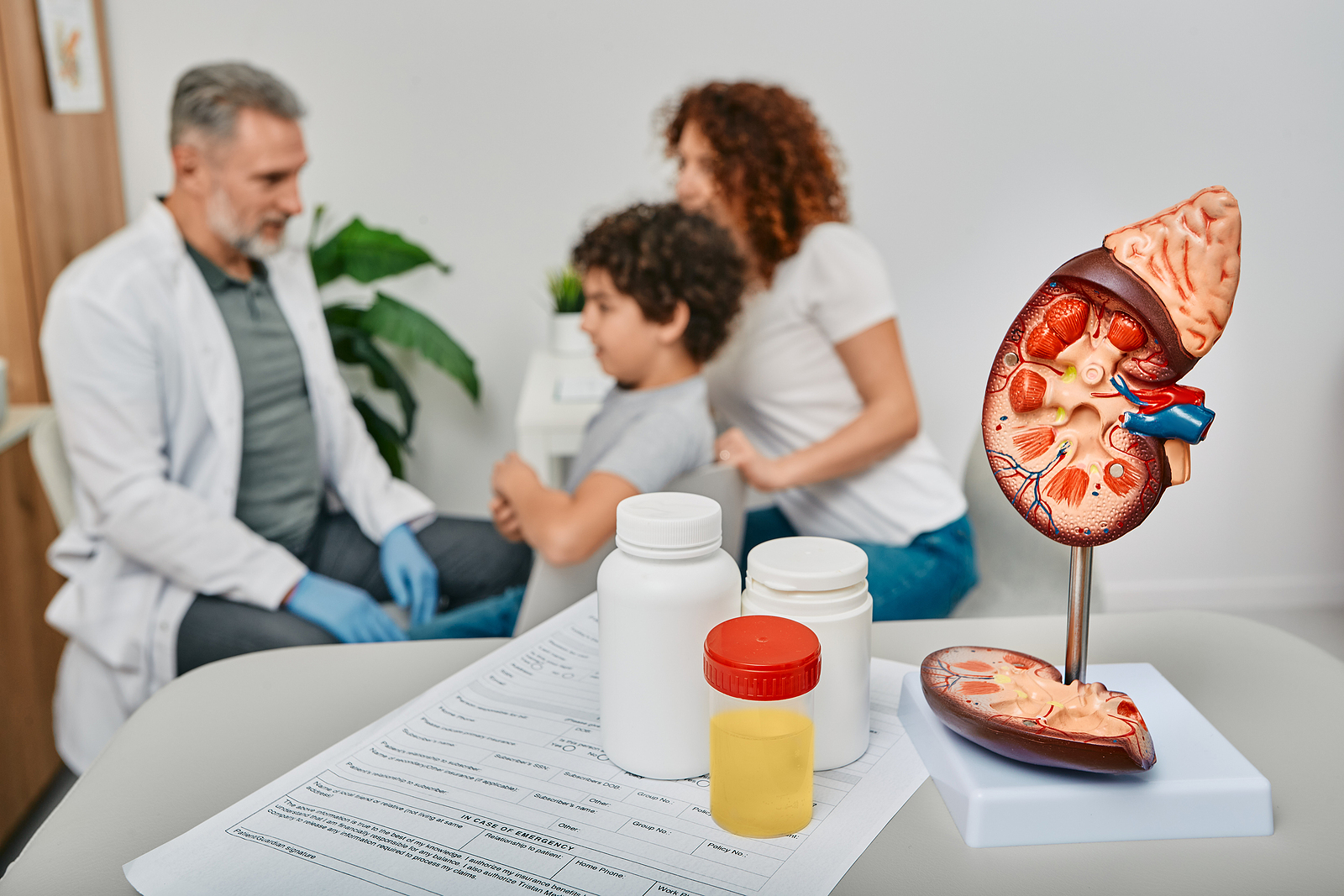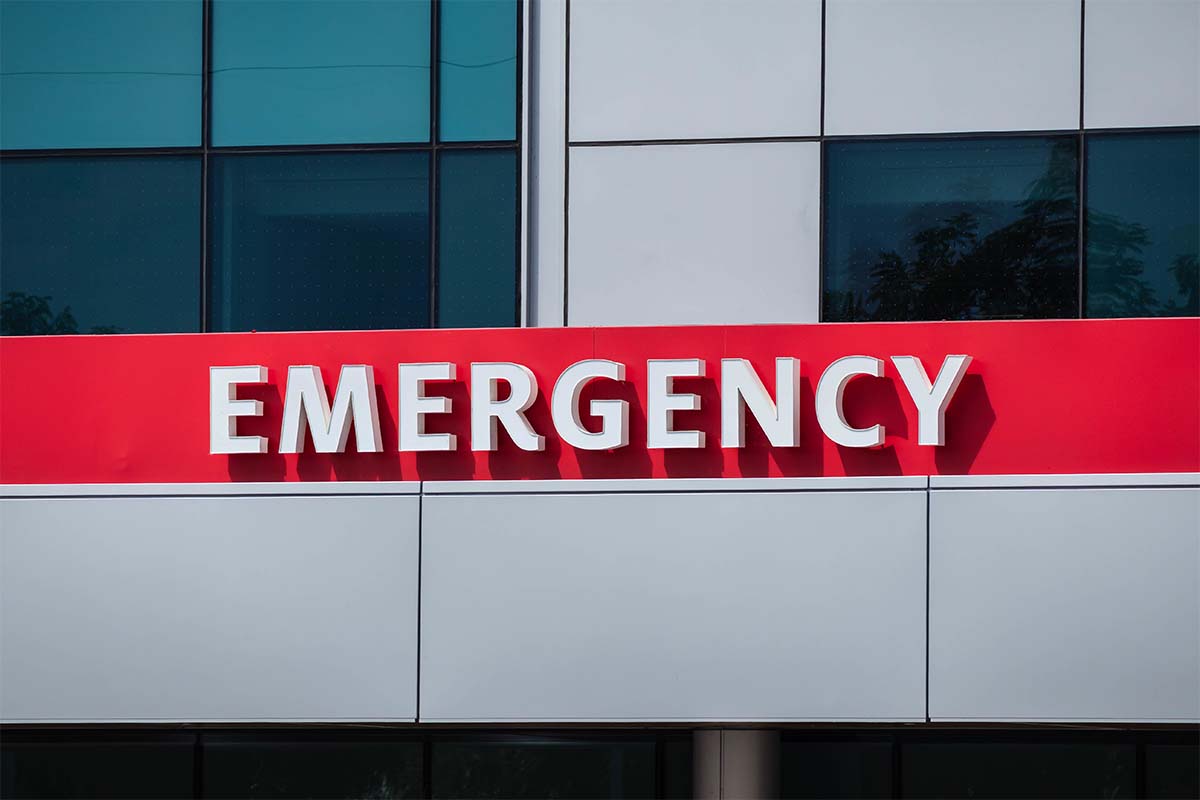
Kidney stones affect approximately 1 in 11 people in the United States, and a growing number of children, especially teenagers, are among them.
A kidney stone is a small lump of material made of minerals naturally found in the urine, such as calcium, uric acid, or other minerals. When these minerals become too concentrated they form stones that can lodge in the urinary tract. Kidney stones vary in size, usually about an eighth to a quarter of an inch.
Many kidney stones are small enough to easily pass through the urinary tract without causing any pain or other symptoms. Others may grow large enough to impede the flow of urine, causing intense pain. Kidney stones rarely cause permanent damage when treated promptly. (NIDDK)
SYMPTOMS & CAUSES
Your child or teen may complain of a sharp pain in the back, side, lower abdomen, or groin. The pain may come and go in waves. A child with pain and any amount of blood in their urine should be seen by a doctor.
Other symptoms include:
- A constant need to urinate
- Inability to urinate
- Cloudy or bad-smelling urine
- Irritability
- Nausea or vomiting
- Blood in the urine, which may be pink, red, or brown
- Fever or chills
TYPES AND RISK FACTORS
Of the four most common types of kidney stones, two—stones composed of calcium or uric acid—can result from a high concentration of minerals combined with insufficient water intake. Other types of kidney stones—struvite and cystine stones—can form after a urinary tract infection or may stem from a hereditary disorder of the kidneys.
Children may be more at risk if:
- One or more family members have had kidney stones or kidney disease.
- Certain medications are taken over a long period of time, such as diuretics, calcium-based antacids, or excessive amounts of vitamin D
- The child is immobilized for a period of time, such as while wearing a cast or confined to a bed or wheelchair
- Their diet is high in salt, meat, and processed foods, and low in fruits and vegetables
- The child doesn’t drink enough water. Dehydration contributes to the risk of developing kidney stones by increasing the concentration of minerals in the urine. (NIDDK)
DIAGNOSIS AND TREATMENT
Your doctor will evaluate your child’s symptoms and medical history and may also order blood and urine tests to help uncover any underlying problems that may have caused the stone to form. If your child is not in pain, the doctor may recommend waiting until the stone is passed through the urine. Your doctor may instruct you on collecting the stone after it passes. Finding out what the stone is made of can help your child’s doctor determine what may be causing stones to form. (Healthy Children)
If your child has severe pain, accompanied by vomiting or blood in their urine, it may indicate a larger stone that should be medically evaluated. Your doctor may refer your child to a pediatric urologist or nephrologist (kidney disease specialist) to surgically remove the kidney stone or break it into tiny pieces using a noninvasive method. (Boston Children’s)
PREVENTING KIDNEY STONES
Helping your child adopt the following good health practices can help reduce the chances of developing kidney stones in the future:
Hydrate often, but wisely. Beware of sports drinks, as many brands contain large amounts of added sodium, which should be avoided as it contributes to dehydration. Fruit juice or lemonade made with real lemon juice has citric acid that can help prevent stone formation by binding with urinary calcium and reducing mineral buildup. (NIDDK)
Maintain a healthy weight. Medical experts believe that obesity is related to a higher incidence of kidney stones. The simplest remedy to prevent overweight is to make sure your child is active every day, eats a healthy diet with only moderate amounts of sodium, sugar and fat, and drinks plenty of water.
Don’t focus on supplements. Don’t try to limit your child’s intake of dietary calcium in the hope of preventing kidney stones. While some kidney stones are composed of the mineral, excess dietary calcium is not a direct cause of kidney stones. (Boston Children’s) Conversely, don’t give your child a calcium supplement unless recommended by your doctor. (Healthy Children)
WORK CITED
Gul, Z. and Monga, M. “Medical and Dietary Therapy for Kidney Stone Prevention.” Korean Journal of Urology, Dec 2014. https://www.ncbi.nlm.nih.gov/pmc/articles/PMC4265710/
“How are kidney stones diagnosed?” Boston Children’s Hospital. https://www.childrenshospital.org/conditions-and-treatments/conditions/k/kidney-stones/diagnosis-and-treatment
“Kidney Stones in Children.” National Institute of Diabetes and Digestive and Kidney Diseases (NIDDK), part of the National Institutes of Health. Last update: May 2017. https://www.niddk.nih.gov/health-information/urologic-diseases/kidney-stones-children
“Kidney Stones in Children and Teens.” The American Academy of Pediatrics. Last update: January 2021. https://www.healthychildren.org/English/health-issues/conditions/genitourinary-tract/Pages/Kidney-Stones-in-Children-and-Teens.aspx
















